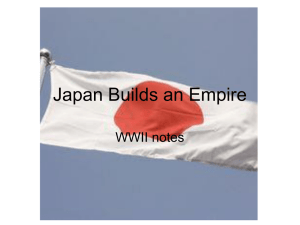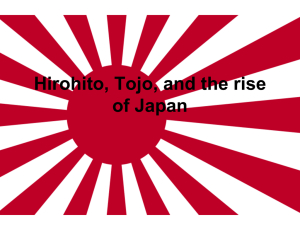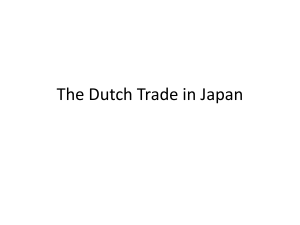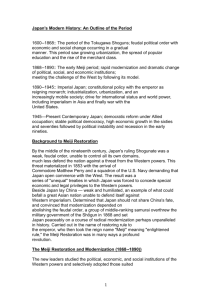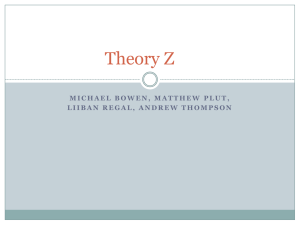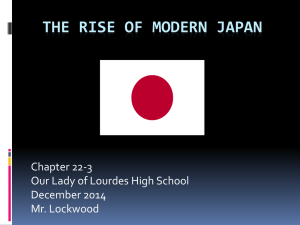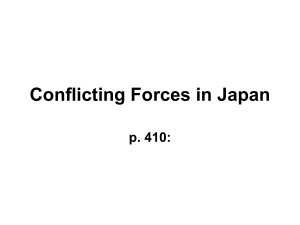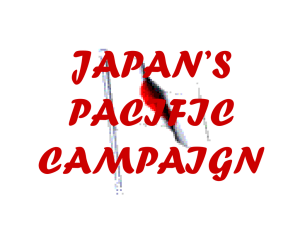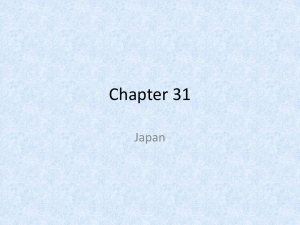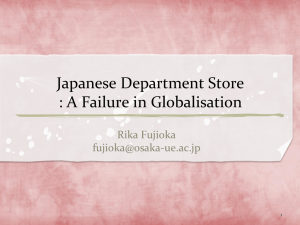File
advertisement
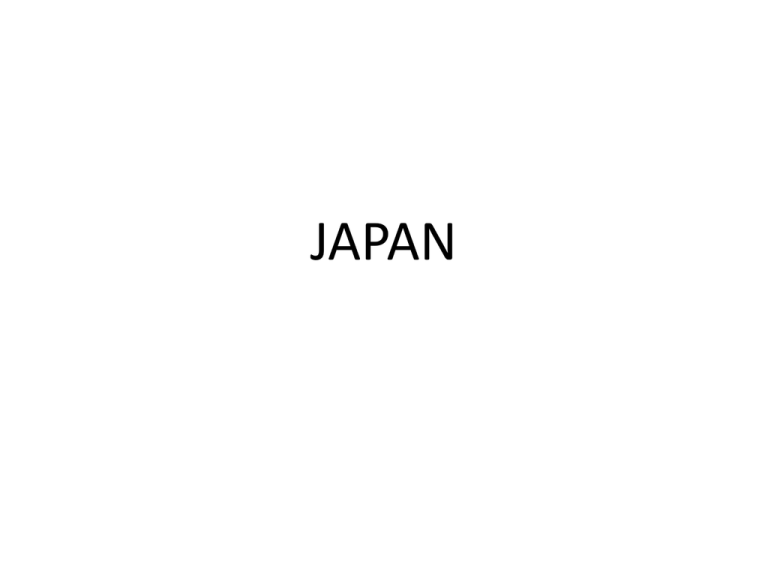
JAPAN Emperor Hirohito • Pledged “to preserve world peace and benefit the welfare of the human race” • Ruled for 63 years After WWI • • • • Japanese economy is on the rise after WWI Exports rise greatly Japan becomes an industrial power Japan expands through out East Asia, while western powers are distracted in Europe • Japan takes over the land Germany had possessed in East Asia. 1920s • Japan becomes Democratic • Members of the Japanese parliament use new powers • 1925- all adult men of any age able to vote • Some changes added to women’s rights in Japan • The Zaibatsu bribe government • Japans rapid expansion start to effect relationship with Western powers • Japan slows expansion to keep relationship with Western powers • 1922 – Japan agrees to limit it’s navy. (agreement between France, Britain, and United States) • Also agreed to leave Shandong Japans hidden problems • Rural peasants were excluded in nations prosperity • Low wages for factory workers • Lower class started looking to socialist ideas (Marx and Lenin) • Younger tradition revolting over tradition – Adopts western fads and fashions – Reject family athority • Tension between military and government • Conservatives and military officers angered over corrupted government • Condemned western influences • Destructive earthquake hit Tokyo in 1923 • Earthquake plus widespread fires caused 100,000 deaths loss of 650,000 buildings • Tokyo recovered slowly as Japan meets a worldwide economic crisis – the Great Depression • Great Depression causes Japanese exports to fall, and peasants close to starvation • Economic down fall causes more discontent within the military officers and ultranationalists • Ultranationalists angered that Japan halted expansion, felt the Japanese empire was minuscule in comparison to western empires. • United States, Canada , and Australia had racial policies against the Japanese immigrants, causing more of an outrage within the country. • Japanese nationalists continued to demanding expansion, wanting to take over Manchuria, China for its rich natural resources Manchurian Incident • Occurred in 1931 • Group of Japanese officers causes an incident, to make an excuse to take over Manchuria. • Japanese officers blow up tracks on a Japanese train track, and blamed it on the Chinese. • Without permission from their government they stormed Manchuria. • After conquering all of Manchuria they placed a puppet state called Manzhougou putting a past Chinese emperor Puyi as the head of state. • Though the government was angered by the military’s actions the people of Japan sided with the military. • Japan leaves League of Nations due to the opposition given by the other member states over the aggression against China. • Japan nullifies agreements to limiting naval armaments • Early 1930s ultranationalists gaining support from the people. • Many politicians and business men against expansion were assassinated by members of extreme nationalists • By 1937 the military dominated the government • Government starts to take down any socialist and suppresses democratic freedoms • People started to worship the emperor, forming a cult • Started teaching children complete obedience to the emperor and state at schools • Taking advantage of the civil war in China Japan starts to take it over expecting to conquer all of China, though when WWII spreads into Asia they change their plans. • In 1936 Japan sides with Germany and Italy, – signs the Tripartite Pact in September 1940 (the Axis powers)
